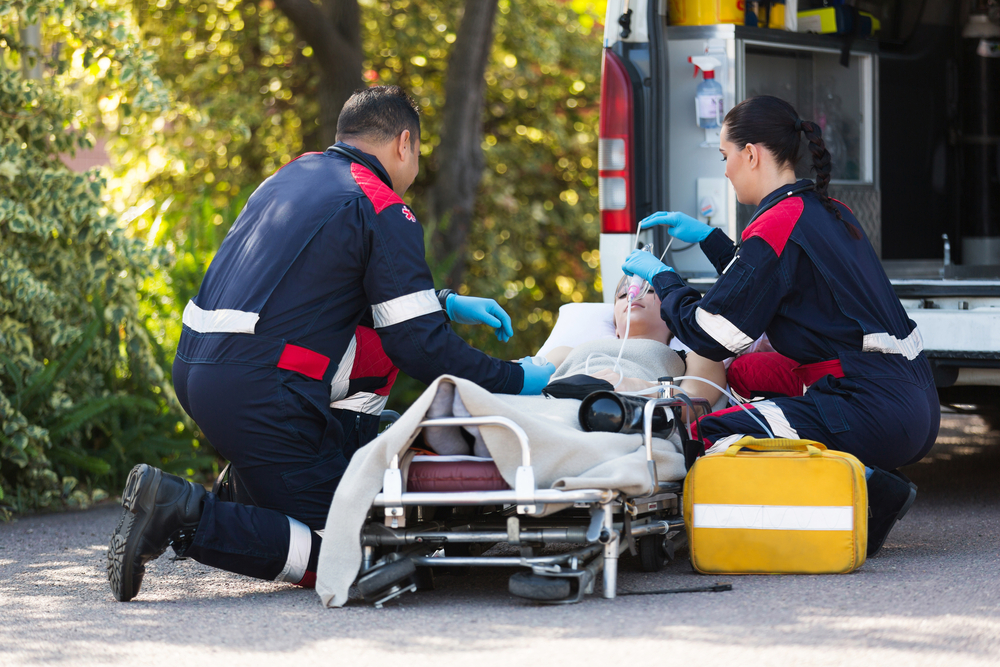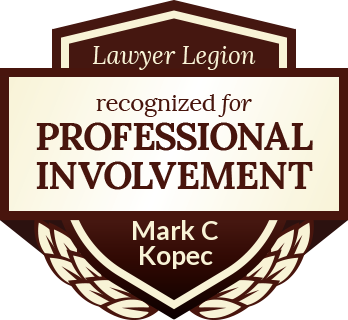Suing Ambulance EMTs: Stracke v. Butler
At the Kopec Law Firm, we get calls about suing city ambulance EMTs for medical malpractice when answering a 911 call. Specifically, the caller complains about something the city EMTs did or failed to do. Sometimes, the call complains about how long the ambulance took to arrive at the scene.
A case is possible, but the law on these claims differs significantly from the law that applies to doctors. Below, I discuss the legal standard and a case using it, then provide a commentary for Maryland medical malpractice lawyers.

Suing Ambulance EMTs: Gross Negligence
Instead of an ordinary negligence standard, the standard for these claims in Maryland is gross negligence. Section 5-604(a) of the Courts & Judicial Proceedings part of the Maryland Code provides:
“[n]otwithstanding any other provision of law, except for any willful or grossly negligent act, a fire company or rescue company, and the personnel of a fire company or rescue company, are immune from civil liability for any act or omission in the course of performing their duties.”
Application: Stracke v. Butler
In Stracke v. Butler (August 16, 2019), the Court of Appeals of Maryland issued a reported opinion applying this gross negligence standard. Mrs. Butler called 911, saying that her husband was having chest pains, and an ambulance arrived. At trial, the parties told different versions of the EMTs’ actions in treating Mr. Butler. The EMTs ended up taking Mr. Butler to a nearby hospital. While he was waiting in the emergency room, he had a fatal heart attack.
The plaintiffs sued the ambulance EMTs and argued that the EMTs were grossly negligent in failing to respond to Mr. Butler’s symptoms. The Court explained the difference between the legal standards:
Ordinary, simple negligence is “any conduct, except conduct recklessly disregardful of an interest of others, which falls below the standard established by law for the protection of others against unreasonable risk of harm.” On the other hand, this Court has explained that “gross negligence is an intentional failure to perform a manifest duty in reckless disregard of the consequences as affecting the life or property of another, and also implies a thoughtless disregard of the consequences without the exertion of any effort to avoid them.” We have made clear that a claim for gross negligence “sets the evidentiary hurdle at a higher elevation.” (Op. at 11).
The Court also explained gross negligence applicable to suing ambulance EMTs this way:
Gross negligence is not just big negligence. For these purposes, gross negligence “must be sufficient . . . to establish that the defendant . . . had a wanton or reckless disregard for human life . . . . Only conduct that is of extraordinary or outrageous character will be sufficient to imply this state of mind.” (Id.)
Court’s Analysis
In reviewing the evidence before it, the Court found that the evidence failed to establish gross negligence. There was insufficient evidence to conclude that the EMTs made a deliberate and conscious choice not to help Mr. Butler survive. They responded to the call, provided Mr. Butler with immediate attention and treatment, and transported him to the nearest hospital in under 10 minutes. Even though the paramedics failed to follow procedures and protocols, that was not enough. They did not knowingly, consciously, and deliberately do so. The evidence did not indicate that the ambulance crew had a wanton and reckless disregard for Mr. Butler’s life, nor did they present an utter indifference to his rights and well-being. (Id. at 12-13, 16-18).
The Stracke decision was 4-3, and three judges determined that the jury could find gross negligence. The dissent wrote, “If what the defendants did and failed to do does not arise to gross negligence, what would?” (Dissent at 23 fn. 10).
Commentary By the Baltimore Medical Malpractice Lawyer
Where Does Stracke Leave Us?
What can Maryland medical malpractice lawyers do when suing ambulance EMTs under Stracke? The dissent’s question is a good one. If Stracke wasn’t gross negligence, what is?
Several situations are probably not gross negligence. Suppose paramedics attempt to treat the patient but make a misdiagnosis. Also, they may fail to give the correct treatment or provide the wrong treatment. Even if there are multiple instances of failing to comply with professional standards, it is probably not gross negligence.
What would be “reckless disregard” for the patient’s life? The Stracke Court found that “there was not sufficient evidence to conclude that the EMTs made a deliberate and conscious choice to not help Mr. Butler survive.” (Op. at 13.) Under this language, a deliberate choice not to help a patient may qualify. Presumably, the deliberate choice has to have no basis. For example, suppose the EMTs decide not to treat the patient. Their decision is because it would require them to enter into a life-threatening situation. In that case, it is hard to see how that would meet the standard.
As long as Stracke remains the law, Maryland medical malpractice lawyers will face challenging circumstances when suing ambulance EMTs.
Mark Kopec is a top-rated Baltimore medical malpractice lawyer. Contact us at 800-604-0704 to speak directly with Attorney Kopec in a free consultation. The Kopec Law Firm is in Baltimore and helps clients throughout Maryland and Washington, D.C. Thank you for reading the Baltimore Medical Malpractice Lawyer Blog.





